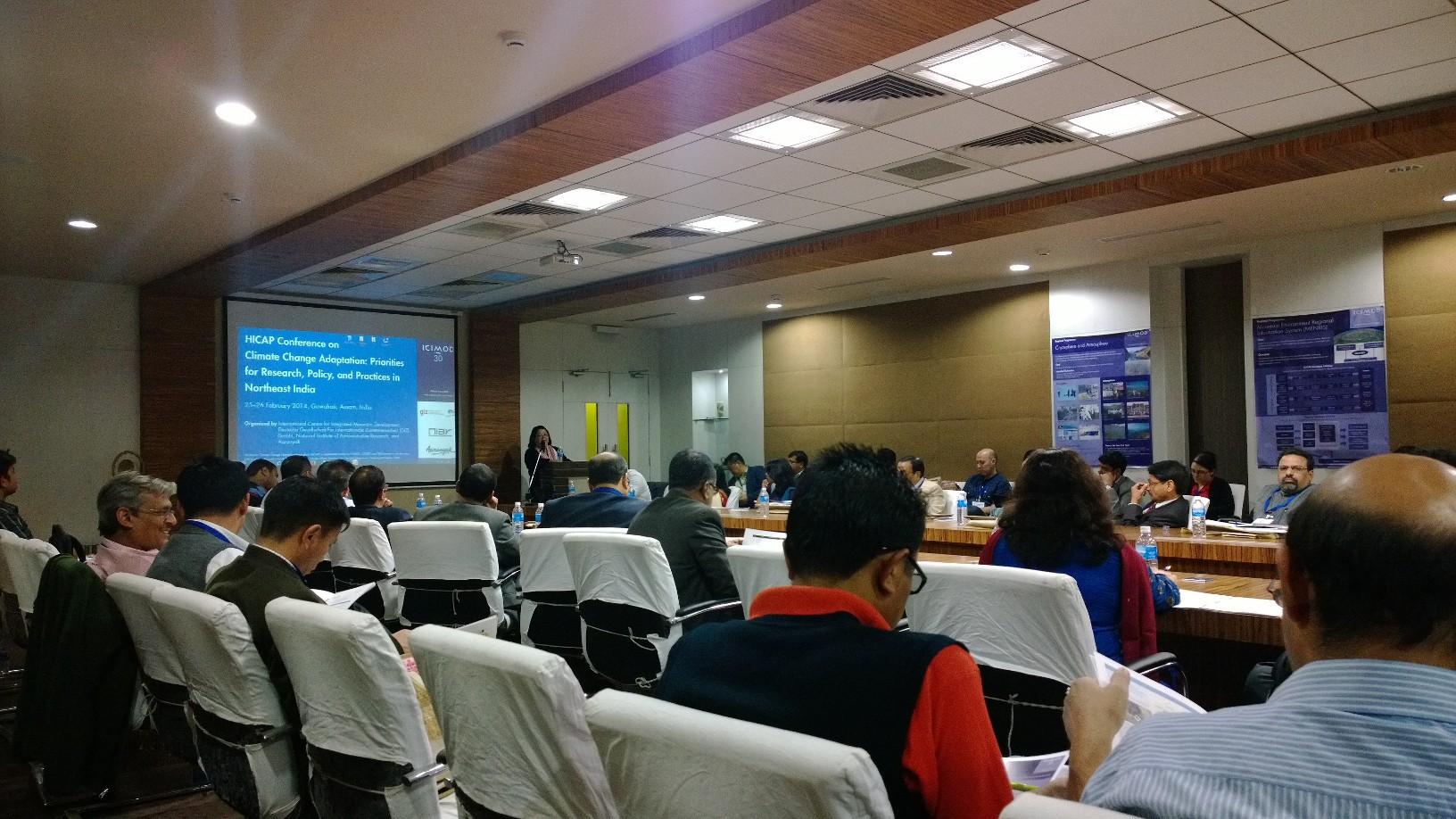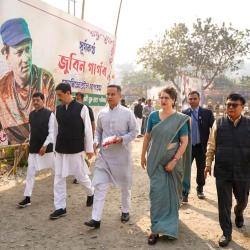ICIMOD’s ongoing mega-conference on Climate Change Adaptation: Priorities for Research, Policy and Practices in North East India, in Guwahati on February 25-26 aims to boost engagements in climate change adaptation discourse and policy processes in the Brahmaputra Basin in North East India. The conference has brought together select international and national experts, researchers, policymakers, and practitioners dealing with climate change policies and livelihoods.
The following queries arise with reference to the ongoing conference:
1. In the last 80 years has the global temperature actually risen and become warmer?
2. If so, is there a correlation between rise in temperature and depletion in the forest areas?
3. Is there a ready graph that illustrates/shows rise in temperature in Assam and the Brahmaputra Valley?
4. Climate Science: The earth has its own balancing mechanism for thermal changes and thus Climate Change is not reversible. How will the conference react to this?
5. Vulnerability and Adaptation: What about the issue of Climate Change refugees from Bangladesh? Does this conference have any contingency programs to counter this as such?
6. In the present climatic scenario, forest types are undergoing a change in Assam. What impacts will it have on the wild biota?
7. Carbon footprints over Northeast India: How can people in Northeast Indian states harvest from carbon trading and carbon sequestration? In the same vain are there changes in the rain pattern, natur and quantum?
8. Climate Change Adaptation policies/action plans/frameworks: The state of Assam saw two drafts on Climate Change. While one draft was prepared by the Assam Science and Technology Centre (ASTEC) in consultation with Assam University, Gauhati University, Tezpur University and research inputs drawn from the Aaranyak data bank, the other in use was made by The Energy and Resources Institute (TERI), New Delhi. Commenting to this during a pre-conference media briefing on February 24 at Gauri Sadan, Nand Kishore Arrawal, ICIMOD said, “We are fully aware of the limitations that research organizations have and I will say two things about this. For one we are organizing this conference as a process of ensuring that, at least we are moving in that direction that, policy makers make note of what research is going on. Secondly, we see a big role of the media and that is the reason why we recently prepared a training programme for young journalists of this region. The young generation should write about Climate Change and Adaptation, it's not just researchers and technical experts. If the media writes about Climate Change, people will take more notice than what a scientist says.”
With multiple agencies coming to the fore with Climate Change researches the question is will the results necessarily reflect in the State Action Plan for Climate Change. Whose findings will hold precedence in the process then?
This gives us to understand that researchers and policy makers are not at all on the same page. Will this then not affect the implementation of action plans driven to address Climate Change in Assam by the government?
- Add new comment
- 16048 reads










Comments
Climate Change is a very
Pages
Add new comment